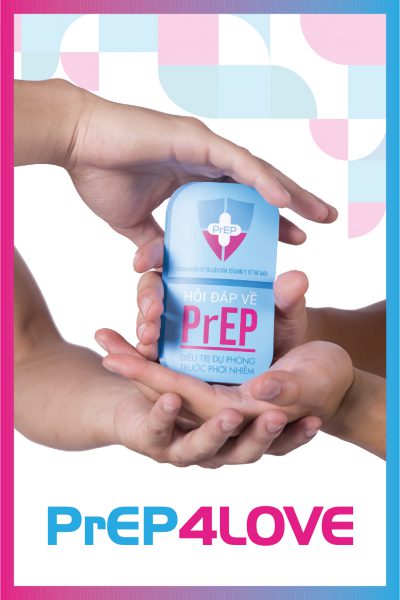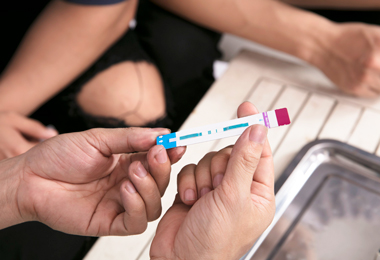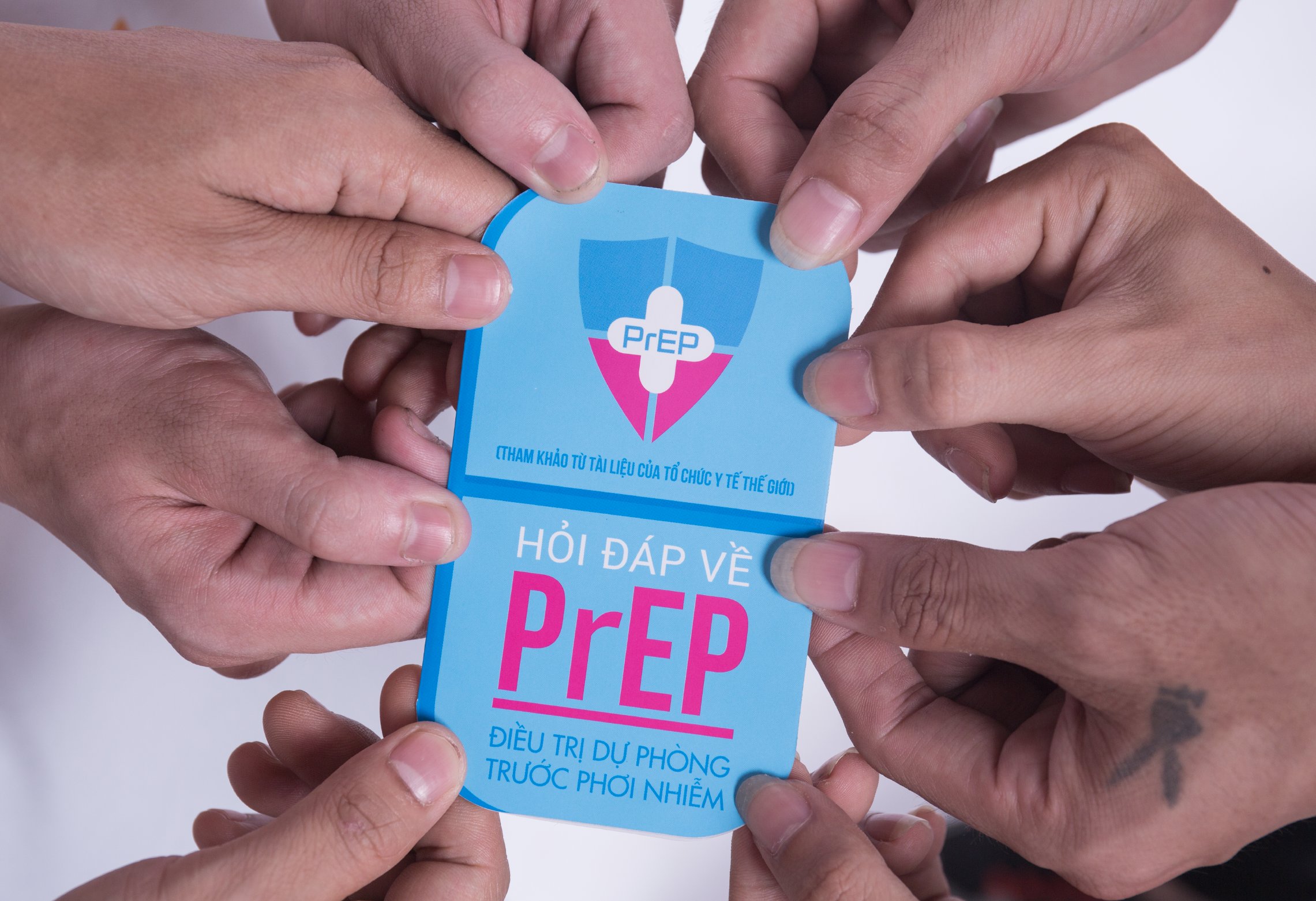


What do you know about PrEP?
-
 What is PrEP?
What is PrEP?
 Pre-exposure prophylaxis (PrEP) involves the use of antiretroviral (ARV) medications by an HIV-negative person to prevent HIV infection.
Pre-exposure prophylaxis (PrEP) involves the use of antiretroviral (ARV) medications by an HIV-negative person to prevent HIV infection.
-
 How does PrEP work?
How does PrEP work?
 PrEP is highly effective when taken as prescribed. Clinical trials have proved that when used consistently, PrEP helps reduce the risk of HIV infection by more than 90%.
PrEP is highly effective when taken as prescribed. Clinical trials have proved that when used consistently, PrEP helps reduce the risk of HIV infection by more than 90%.
-
 How do I use PrEP effectively?
How do I use PrEP effectively?
 Taking PrEP everyday is recommended. To help you remember, it should be a part of your daily routine, such as brushing your teeth, or you can use an alarm or a cell phone to remind you.
Taking PrEP everyday is recommended. To help you remember, it should be a part of your daily routine, such as brushing your teeth, or you can use an alarm or a cell phone to remind you.
 PrEP should be taken daily at any time (morning, afternoon, or evening) before or after meals.
PrEP should be taken daily at any time (morning, afternoon, or evening) before or after meals.
 If you miss a dose in a while, take it as soon as you remember.It is safe to occasionally take two tablets in one day. However, it is not recommended to take more than two tablets per day.
If you miss a dose in a while, take it as soon as you remember.It is safe to occasionally take two tablets in one day. However, it is not recommended to take more than two tablets per day.
 It is safe to occasionally take two tablets in one day. However, it is not recommended to take more than two tablets per day regarding anal sex, and regarding vaginal sex or blood after 21 days of adherence contact.
It is safe to occasionally take two tablets in one day. However, it is not recommended to take more than two tablets per day regarding anal sex, and regarding vaginal sex or blood after 21 days of adherence contact.
-
 Does PrEP have side effects?
Does PrEP have side effects?
 PrEP is very safe. More than 90% of PrEP users do not experience side effects.
PrEP is very safe. More than 90% of PrEP users do not experience side effects.
 Only 10% of PrEP users experience some mild side effects such as diarrhea, nausea, anorexia, abdominal cramps, or flatulence. Some may have dizziness or a headache. These symptoms are usually mild and go away within the first few weeks, not usually lasting more than one month.
Only 10% of PrEP users experience some mild side effects such as diarrhea, nausea, anorexia, abdominal cramps, or flatulence. Some may have dizziness or a headache. These symptoms are usually mild and go away within the first few weeks, not usually lasting more than one month.
 Only a small percentage of people cannot use PrEP, since it affects how well their kidneys work. Your blood will be tested to measure kidney function (creatinine) before you start PrEP, and it will be tested again every six months. About 1 in 200 users see an increase in creatinine once, but it quickly returns to a normal level in subsequent tests.
Only a small percentage of people cannot use PrEP, since it affects how well their kidneys work. Your blood will be tested to measure kidney function (creatinine) before you start PrEP, and it will be tested again every six months. About 1 in 200 users see an increase in creatinine once, but it quickly returns to a normal level in subsequent tests.
 PrEP contains TDF, which can have a small effect on bone mineral density. The chance occurs within the first six months of taking PrEP, and bone mineral density usually returns to normal quickly after stopping PrEP.
PrEP contains TDF, which can have a small effect on bone mineral density. The chance occurs within the first six months of taking PrEP, and bone mineral density usually returns to normal quickly after stopping PrEP.
-
 When can I stop PrEP?
When can I stop PrEP?After 28 days since the last exposure to HIV, you can stop taking PrEP. You may stop PrEP if you are no longer at substantial risk of acquiring HIV. You do not have substantial risk of acquiring HIV infection when you:
- Have safe sex (always use condoms).
- Are no longer a sex worker.
- Your HIV-positive partners have received antiretroviral drugs for six months or more and have an undetectable viral load.
-
 Why is it necessary to test for HIV before starting PrEP?
Why is it necessary to test for HIV before starting PrEP? It is recommended that you get HIV testing before starting or restarting PrEP. Only people with HIV-negative test results are eligible to take PrEP. People who already have HIV should not take PrEP. Otherwise, PrEP may cause drug resistance and treatment effectiveness reduction.
-
 Can PrEP prevent STIs?
Can PrEP prevent STIs?PrEP cannot prevent other sexually transmitted diseases (STIs) such as syphilis, gonorrhea, and chlamydia. You should use condoms whenever having sex to prevent these diseases.
-
 Does PrEP have the contraceptive effectiveness?
Does PrEP have the contraceptive effectiveness?PrEP does not have the contraceptive effectiveness The hormonal contraceptive methods (oral contraceptive pills, injectable contraception, and contraceptive implants) do not effect the effectiveness of PrEP and PrEP does not diminish the pregnancy prevention effectiveness of contraception.
-
 Does PrEP interact with drugs or alcohol?
Does PrEP interact with drugs or alcohol?
PrEP does not interact with drugs or alcohol. Consuming alcohol or drugs, such as cocaine or methamphetamine would not diminish the effectiveness of PrEP.
-
 I have hepatitis B, can I use PrEP?
I have hepatitis B, can I use PrEP?
You need a blood test to confirm if you have hepatitis B virus (HBV) infection. If you have HBV, you need specialist advice on whether you have prescription of HBV treatment. If you do not have prescription of HBV treatment, you can use PrEP.
Q&A about PrEP
Ask us
If you can not find the answers for your questions, please leave your questions here.





 Sơn use PrEP to protect my own health. Sometimes I might not always be faithful, in such cases, PrEP will almost fully protect me from HIV
Sơn use PrEP to protect my own health. Sometimes I might not always be faithful, in such cases, PrEP will almost fully protect me from HIV










